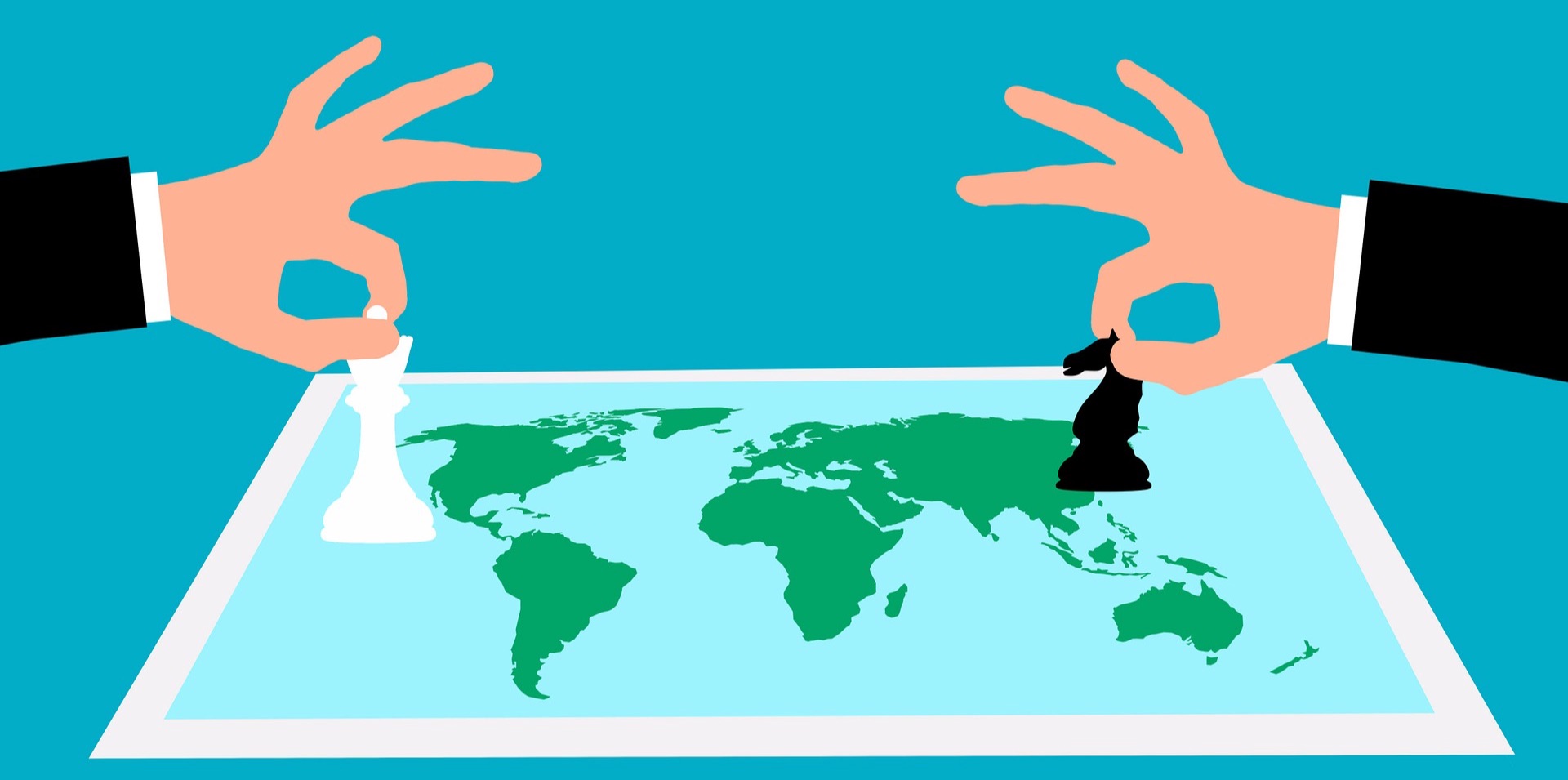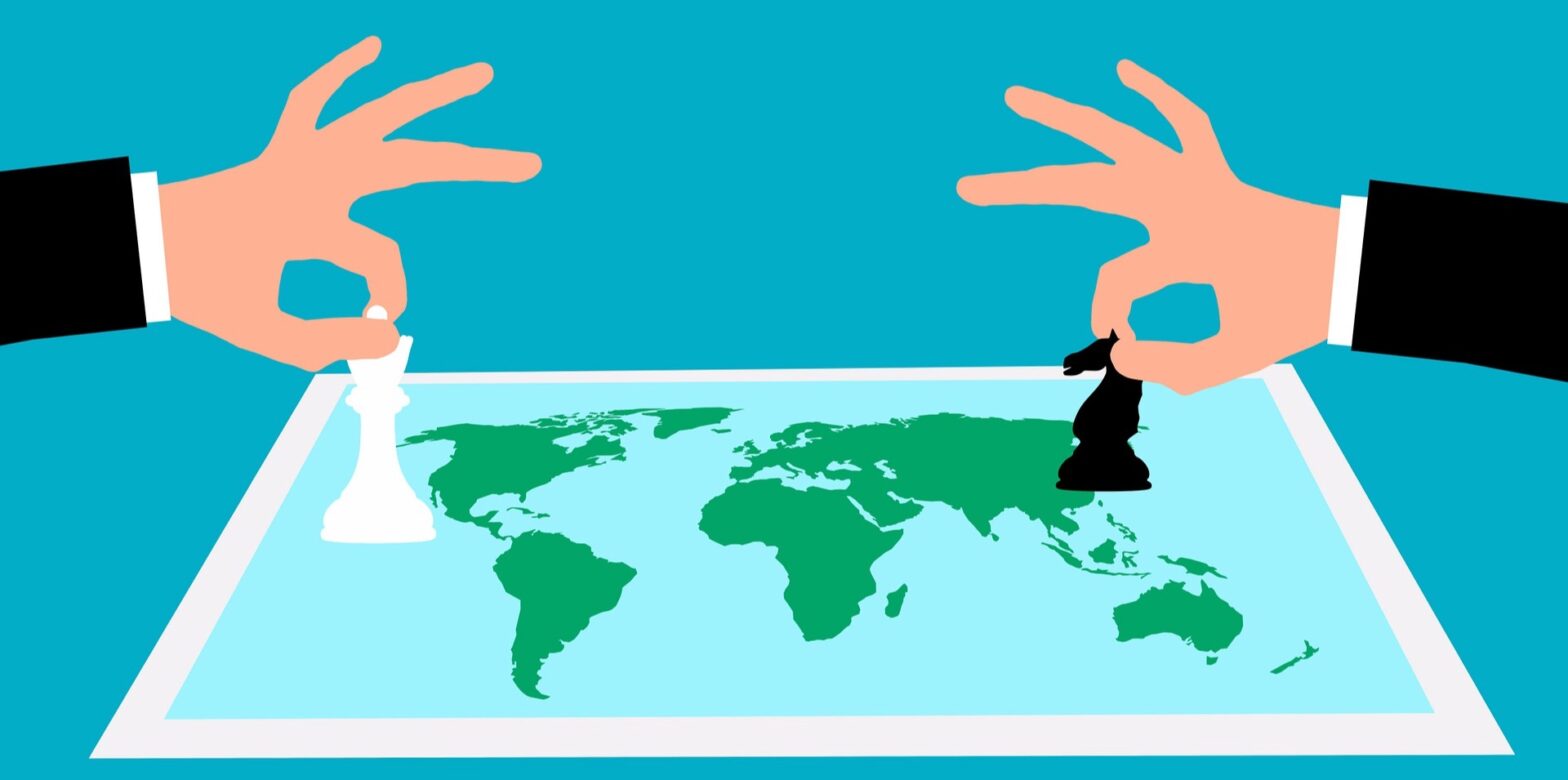Bridging the Gap: The Role of Tech Diplomacy in Shaping Global AI Governance
by Sarah Hesterman
Rich Roberts, a Programme Director at the United Kingdom’s Wilton Park, recently shared artificial intelligence “provides the current impetus to launch a new wave of tech diplomacy,” and that “creating the fora, developing the mechanisms, and building the relationships that we need to govern these new technologies is urgent.”
| Roberts’ assessment is spot on. As these technologies continue to advance in both development and accessibility at a breakneck pace, experts, policymakers, and AI developers alike have issued countless warnings they may aid in exacerbating socioeconomic inequalities, violating data privacy, and increasing disinformation, alongside an array of other concerns. Not only can tech diplomacy play an important role in shaping global AI governance to mitigate these risks, but tech diplomacy must be utilized to foster cross-border collaboration and set a precedent for how we will handle the governance of future technologies as they inevitably emerge. Let’s break down Roberts’ three recommendations: 1. Creating fora As an increasingly adopted practice, tech diplomacy can be leveraged to establish fora held with tech experts, diplomats, government leaders, AI developers, international organizations, civil society, and other key players to ground governance approaches in international, multi-stakeholder cooperation. What is key at this nascent stage is fostering a team effort to develop a robust, agreed-upon approach. For example, in June, the World Economic Forum and the Tech Diplomacy Network co-hosted a pivotal forum drawing in tech diplomats, researchers, and the private sector to develop a shared understanding of AI governance, talk about risks, and imagine potential international frameworks. Such discussions are crucial for convening relevant actors to work together towards developing universal standards and meaningful systems of governance shaped by a diversity of perspectives, Roberts notes, stating dialogue “will need to be continuous and serialised, to reflect the dynamism of the issues and to provide a regular forum for policy alignment.” Through a concentrated effort to hold inclusive, cross-sector fora, tech diplomacy can serve as a key facilitator of multi-stakeholder efforts to guide responsible AI use and development. 2. Developing mechanisms To establish international standards is to set the stage for global AI governance that is effective and widely supported. As AI technologies continue to develop at an unprecedented speed, there is a growing need for regulatory mechanisms and universally-heeded values to mitigate the risks posed by these increasingly sophisticated tools. Despite driving significant innovations around the world and in multiple sectors, the proliferation of new and improved AI technologies has introduced unavoidable ethical, social, and security-related challenges. It is thus vital regulatory frameworks and systems of governance are created with the concept of responsible innovation in mind, so as to preserve AI’s benefits while minimizing harm. This is where the power of tech diplomacy comes into play as a practice that brings both the private and public sectors to the table, and which can initiate discussions around developing mechanisms that are balanced while still having teeth. At the domestic level, tech diplomats can utilize their global perspectives to advise on the regulatory approaches of their home governments, and at the international level, can contribute to shaping global AI governance through coordinating negotiations between states, international organizations, civil society, and the private sector to move the ball forward. Tech diplomats can also help facilitate bilateral and multilateral agreements on issues pertaining to all nations involved, such as the spread of information pollution, data sharing, and national security. 3. Building relationships Motivated by the principles of mutual respect, trust, and constructive communication, tech diplomats are uniquely positioned to lead the charge on coalescing a diverse set of actors to shape global AI governance. According to Eugenio V. Garcia, Tech Diplomacy Network team member and Brazil’s Deputy Consul General and Tech Ambassador, tech diplomats “are expected to be able (ideally) to interact with many different sectors, industries and innovation ecosystems, while seeking win-win cooperation with partners in frontier technologies to help promote economic and social development back home.” They should be empowered to use these skills to network and build collaborative relationships, mediate dialogue between parties with potentially conflicting perspectives, and encourage alignment on how to move forward. Ultimately, tech diplomats can make the monumental task of creating a framework for global AI governance possible. This remains a crucial undertaking, and will lay the groundwork for necessary long-term cooperation as the global technology landscape continues to evolve. We must act now, using tech diplomacy as a tool for ensuring the responsible use and development of AI everywhere. |
| Interview with Dr. Robin Michael Garcia Tech Diplomacy Network CEO Christina Steinbrecher-Pfandt recently spoke with Dr. Robin Michael Garcia, a political scientist, academic, and public affairs advisor. He is the president and CEO of WR Advisory Group and the founder and chairman of WR Numero Research. They talk about the interplay of technology and policy, the state of tech in the Philippines, multi-stakeholder collaboration, and more. Watch the full interview below! |
Read full newsletter on: https://mailchi.mp/tech-diplomacy/tech-diplomacy-news-september-12650447?e=5594b13229

